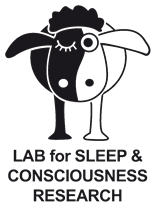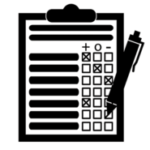News 2017
Please participate in our survey:
A critical evaluation of Neurofeedback (NFT) efficacy”
Christine Blume wins Young Investigators Award 2017
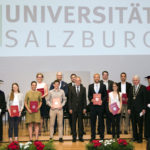
Copyright: Scheinast
On the “Day of the University”, which we celebrated on 31st May 2017, the university also awarded the Young Investigators Awards to young scientists in the categories „Law & Economics“, „Arts & Humanities“ and „Natural & Life Sciences“. Thirty-seven young researchers from the „Natural and Life Sciences“ had submitted their abstracts. Prior to the “Day of the University” they had been evaluated and ranked by professors from the various fields. The best six candidates had then been invited to present their research during a six minute presentation, which was followed by a short discussion with the scientific committee. The announcement of the winners and award presentation ceremony took place during a ceremony in the afternoon in presence of the Austrian Federal President Alexander van der Bellen and the chancellor of the university. Christine Blume from the CCNS has won the YIA for her abstract entitled “A clue to consciousness? Significance of circadian rhythms in severely brain‐injured patients.“
Publication: Circadian Rhythms in Brain-Injured Patients
Could Fixing the Body Clock Help People Regain Consciousness?
MINNEAPOLIS – For people with severe brain injuries, researchers have found that the rhythm of daily fluctuations in body temperature is related to their level of conciousness, according to a preliminary study published in the April 19, 2017, online issue of Neurology®, the medical journal of the American Academy of Neurology.
“Our study suggests that the closer the body temperature patterns of a severely brain injured person are to those of a healthy person’s circadian rhythm, the better they scored on tests of recovery from coma, especially when looking at arousal, which is necessary for consciousness,” said study author Christine Blume, PhD, of the University of Salzburg in Austria.
Incoming new internships:

Mohamed S. Ameen
ESRS-Travel-Grant-Winner
JMN – Joint Master in Neuroscience
Faculte des Sciences de la Vie
Université de Strasbourg
Neurofeedback Publication in BRAIN
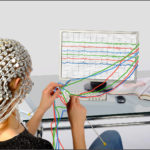
Recently, Schabus et al. (2017) were able to publish the results of several years of research on neurofeedback in the Lab for Sleep and Consciousness Research at the University of Salzburg in the prestigious scientific journal BRAIN. They had investigated the efficacy of neurofeedback for the treatment of primary insomnia. From the results of their study the authors concluded that for the treatment of this disorder, neurofeedback does not have specific efficacy that goes beyond unspecific placebo effects. They did not find an advantage of neurofeedback compared to a placebo feedback condition. In the latter condition participants received neurofeedback too, however that was unsystematic and did not include the EEG frequency range, which was assumed to be efficacious for the treatment of primary insomnia. The authors conclude that on the basis of the obtained results neurofeedback cannot be recommended as an alternative to cognitive behavioural therapy, which is the current (non-pharmacological) standard-of-care treatment.
Fulbright Grant for Kerstin Hödlmoser
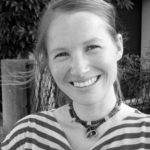
CCNS member Kerstin Hödlmoser received a “Fulbright Research Grant”. In 2018 Kerstin will stay for four month at the University of California, Berkeley and conduct her research at the Sleep and Neuroimaging Laboratory with Matthew Walker (project: “Sleep to remember…but also to forget: A combined fMRI and EEG approach to investigate sleep-dependent motor adaptation”).
Sleep’n’Cycle Symposium 2017
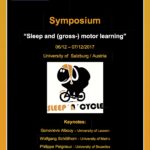
from 6th December to 7th December 2017 at the University of Salzburg (Salzburg, Austria)
with Genevieve Albouy (University of Leuven), Wolfgang Schöllhorn (University of Mainz), Philippe Peigneux (University of Bruxelles, and many more…
“WissensDurst” Festival of Austrian Science 2017
3rd Symposium on Sleep, Cognition, and Consciousness
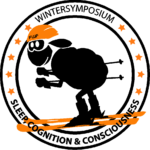
in Kaprun/Austria from 2nd to 5th March 2017
with Robert Bodizs, Oliviero Bruni, Christian Cajochen, Srivas Chennu, Thanh Dang-Vu, Julien Doyon, Steffen Gais, Wolfgang Klimesch, Lucia Melloni, Nayantara Santhi, Philippe Peigneux, Gio Piantoni, Lucia Talamini, Eus Van Someren, Nathan Weisz, and many more…
Publications:
In press and accepted:
van Schalkwijk, F. J., Sauter, C., Hoedlmoser, K., Heib, D. P. J., Klösch, G., Moser, D., Gruber, G., Anderer, P., Zeitlhofer, J., & Schabus, M. (in press). The effect of daytime napping and full-night sleep in the consolidation of declarative and procedural information. Journal of sleep research. (Impact factor: 3.259)
2017:
Blume, C., Lechinger, J., Nayantara, S., del Giudice, R., Gnjezda, M.-T., Pichler, G., Scarpatetti, M., Donis, J., Michitsch, G., & Schabus, M. (2017). A clue to consciousness? Significance of circadian rhythms in severely brain-injured patients. Neurology. DOI: (Impact factor: 8.092)
Schabus, M., Griessenberger, H., Gnjezda, M.-T., Heib, D. P. J., Wislowska, M., & Hoedlmoser, K. (2017). Better than sham? A double-blind placebo-controlled neurofeedback study in primary insomnia. Brain, 140 (2), 1-12. DOI: 10.1093/brain/awx011 (Impact factor: 10.545)
Wislowska, M., del Giudice, R., Lechinger, J., Wielek, T., Heib, D., Pitiot, A., Pichler, G., Michitsch, G., Donis, J. and Schabus, M. (2017). Night and day variations of sleep in patients with disorders of consciousness. Scientific Reports, 7. (Impact factor: 5.525)
2016:
Wislowska, M. & Schabus, M. (accepted). What can we learn about brain functions from sleep EEG? Insights from sleep of DOC patients. In C. Schnakers, & S. Laureys (Eds), Coma and Disorders of Consciousness. London, UK: Springer-Press.
Wislowska, M., Heib, D.P.J., Griessenberger, H., Hoedlmoser, K. & Schabus, M. (2016). Individual baseline memory performance and its significance for sleep-dependent memory consolidation. Sleep Spindles & Cortical Up States: A Multidisciplinary Journal, 0, 1-12.
Blume, C., del Giudice, R., Lechinger, J., Wislowska, M., Heib, D.P.J., Hoedlmoser, K. & Schabus, M. (2016). Preferential processing of emotionally and self-relevant stimuli persists in unconscious N2 sleep. Brain and Language. DOI: 10.1016/j.bandl.2016.02.004.
del Giudice, R., Blume, C., Wislowska, M., Wielek T., Heib, D.P.J., & Schabus, M. (2016). The voice of anger: oscillatory EEG responses to emotional prosody. Plos One, 11(7), e0159429. DOI: 10.1371/journal.pone.0159429.
Blume, C., Santhi, N., & Schabus, M. (2016). ‘nparACT’ package for R: A free software tool for the non-parametric analysis of actigraphy data. MethodsX, 3, 430-435.
del Giudice, R., Blume, C., Wislowska, M., Lechinger, J., Heib, D.P.J., Pichler, G., Donis, J., Michitsch, G., Gnjezda, M.-T., Chinchilla, M., & Machado, C. (2016). Can self-relevant stimuli help assessing patients with disorders of consciousness?. Consciousness and Cognition, 44, 51-60.
Thul, A., Lechinger, J., Donis, J., Michitsch, G., Pichler, G., Jordan, D., Ilg, R., & Schabus, M. (2016). EEG entropy measures indicate decrease of cortical information processing in Disorders of Consciousness. Clinical Neurophysiology, 127, 1419–1427.
Lechinger, J., Wielek, T., Blume, C., Pichler, G., Michitsch, G., Donis, J., Gruber, W., & Schabus, M. (2016). Event-related EEG power modulations and phase connectivity indicate the focus of attention in an auditory own name paradigm. Journal of Neurology, 263(8), 1530-1543.
Public Relations:
Newspaper/online article:
- Wie sich Informationen über unseren Schlaf gewinnen lassen (der Standard, 12/2017)
- Level of unconsciousness in brain-damaged patients related to body temperature (sciencedaily.com, 04/2017)
- Wachkoma: Richtiger Rhythmus der inneren Uhr fördert Bewusstsein (derstandard.at, 04/2017)
- Getakte innere Uhr hebt Bewusstsein von Wachkoma Patienten (science.apa.at, 04/2017)
- Getaktete innere Uhr hebt Bewusstsein (science.orf.at, 04/2017)
- Innere Uhr bei Wachkoma-Patienten (science.apa.at, 04/2017
- Could Fixing the Body Clock Help People Regain Consciousness? (aan.com, 04/2017)
- Wie der Schlaf beim Lernen hilft (derstandard.at, 02/2017)
- Schlaf lässt die Synapsen schrumpfen (derstandard.at, 02/2017)
- Neurofeedback Training for Insomnia no better than sham (the neurocritic, 02/2017)
- Neurofeedback Training For Insomnia No Better Than Sham (neurocritic.blogspot.co.at, 02/2017)
- A Placebo May be Effective in Treating Insomnia (sleepassociation.org, 02/2017)
- Simple Placebo Effect Can Successfully Treat Insomnia (medindia.net, 02/2017)
- Insomnia Cure Research 2017: Placebo Treats Sleep Problems As Well As Neurofeedback (medicaldaily.com, 02/2017)
- Medical News Today: Neurofeedback treatment for insomnia no better than placebo (medicine-daily.com, 02/2017)
- Neurofeedback treatment for insomnia no better than placebo (medicalnewstoday.com, 02/2017)
- Successful insomnia treatment may require nothing more than a placebo (sciencedaily.com, 02/2017)
- Insomnia can be cured with placebo: study (deccanchronicle.com, 02/2017)
- Medical News Today: Neurofeedback treatment for insomnia no better than placebo (topnewsphil.com, 02/2017)
- Successful insomnia treatment may require nothing more than a placebo (eurekalert.org, 02/2017)
- Ínsonia: tratamento poderá requerer apenas um placebo (portalenf.com, 02/2017)
- Schlafstörungen: Placebo-Training gleich gut wie Neurofeedback-Training (uni-salzburg.at, 02/2017)
- Bei Schlafstörungen hilft ein Placebo-Training gleich gut wie Neurofeedback-Training (science.apa.at, 02/2017)
- Schlafstörungen: Neurofeedback nicht besser als Placebo (derstandard.at, 02/2017)
- Placebo sorgt auch für Schlaf (Salzburger Nachrichten, 02/2017)
- Neurofeedback wirkt bei Schlafstörungen nur als Placebo (salzburg24.at, 02/2017)
- Neurofeedback bei Schlafstörungen nur Placebo (salzburg.orf.at, 02/2017)
- Schlaf: Aussichtslose Flucht vor der Erholung (Der Standard, Forschung spezial, 01/2017)
- Salzburger Forscher zeigen: Babys lernen schon im Mutterleib (SN, 2016)
TV:
- Kerstin Hödlmoser about “Sleep” (Servus am Morgen, Servus TV, 06/2017)
- Christine Blume about “Circadian Rhythms in Brain-Injured Patients” (BBC Radio, 04/2017)
- Kerstin Hödlmoser about “the influence of sleep on motor skills” (FWF scilog-Newsletter, 04/2017)
- Manuel Schaubs about “steps against sleep disorders” (Heute Mittag, ORF2, 04/2017)
- World day of sleep: Manuel Schabus talking about “sleep” on television (“Guten Morgen Österreich”, ORF 2, 03/2017)
- The influence of light on our sleep-wake cycle:
- News about our study on “prenatal learning”:
https://www.youtube.com/watch?v=3ugI5_BxTVo
